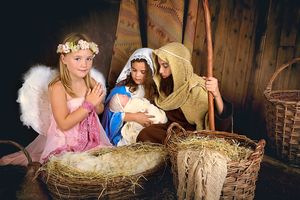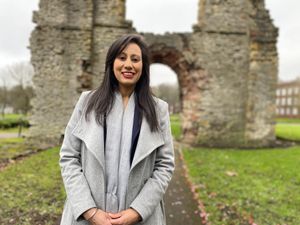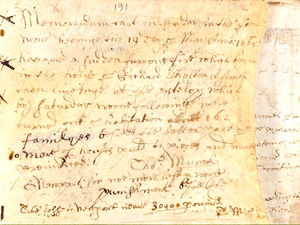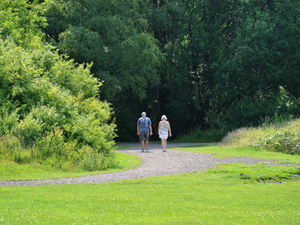Nativities: Little star of Instagram leaves parents divided
It’s that time of year when proud parents are getting ready to watch their little ones make their stage debut in the school play.

Whether they are starring as Mary or Joseph in a nativity, or taking the less-heralded but equally vital role of a startled shepherd, it’s one of those childhood milestones to be cherished forever.
But the sight of a school hall full of mums and dads jostling for the best spot and snapping away on their cameras or phones is becoming less common.
An increasing number of schools are banning parents and grandparents from taking their own pictures for fear of falling foul of privacy laws.
And some schools are attempting to find a middle ground between parents uncomfortable with the idea of a fellow mum or dad posting images of their child online, and those who want to share their experiences with others.
Some have introduced a blanket ban on photography during productions or other school events, ensuring their children are safe from the online world but denying some parents a keepsake of their offspring’s starring turn.
Others are allowing photos to be taken, recognising it’s an important moment in a child’s life – but are attempting to keep a lid on them being shared online by asking parents to agree to keep the snaps to themselves.
Schools can make their own mind up on how best to approach the thorny issue – and one that has moved to ban the use of phone cameras during plays is Mayfield Preparatory School in Walsall.
Headteacher Matthew Draper said the decision followed the General Data Protection Regulation data privacy laws, which came into force last year. But he says parents have been happy to abide by the rules.
Key moment
“We have written consent from parents for displaying photos on our website and on social media,” he says.
“Since GDPR we have also banned parents from taking photos and videos on their devices during nativity plays or other kinds of productions at school, so that images of other children are not captured on their devices.
“The parents have been very good about it. They like to have photos of their children because they’re nice souvenirs to have, so we display photos from events and productions on our website and social media platforms for those children where we have written consent from their parents.
“We create DVDs of our nativities and plays and we make sure we have written consent from parents.”
He adds: “If we didn’t get consent from a particular parent, we would have to edit it to remove their child, but fortunately we have not had to do that up to now.”
It is, though, a matter of preference, and David Tinker, headteacher at Brockton C of E Primary School in Much Wenlock, believes that this special childhood moment should be recorded.
“This is a key moment in a child’s life journey,” he argues.
“We allow parents to take photos because a child is only five once. We just ask them to focus as much as possible on their own child and not to put them on social media.
“I try to be as pragmatic as possible and consider the feelings of parents and those parents who want to see the play but can’t get the time off work.
Friction
“It’s all done with mutual consent. I will ask at the start if there are any objections and so far there never has been.”
Andrew Clewer, headteacher at Landywood Primary School in Great Wyrley, also believes that parents know their child is likely to be photographed when they are taking part in the nativity.
“Our policy is that we allow parents to take photos but they must be for personal use and cannot be uploaded onto social media,” he says. “We always get consent from parents for pupils to be in the play.”
Schools are perfectly entitled by law to restrict the use of photography or video equipment. Anyone caught flouting the rules can justifiably be asked to leave.
It’s hardly surprising that there is friction in this area. There are likely to be as many parents worried about their child’s welfare as there are those who want to capture their child dressed as a Biblical king and attempting to pronounce Frankincense for the family WhatsApp group.
If parents are unsure whether they can share their photos, which also feature other children, online then Anthony Di Palma, a solicitor at DAS Law, says it is advisable to get prior consent from a parent or guardian.
He says one option might be to hide their identity before uploading them to social media.
“You don’t have to blur out children’s faces in order to share them online, as the Data Protection Act doesn’t apply to photographs taken for private use and which do not identify the child by naming them,” he says.
“However, if you would be concerned about images of your own child appearing without your permission, blurring out other children’s faces may be a sensible step to take.”





